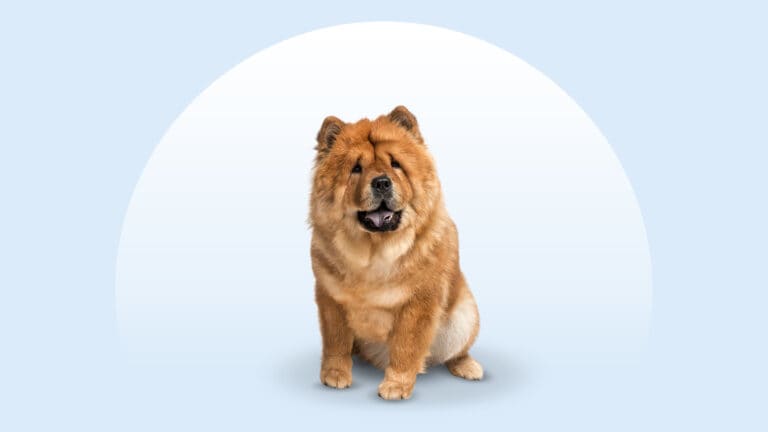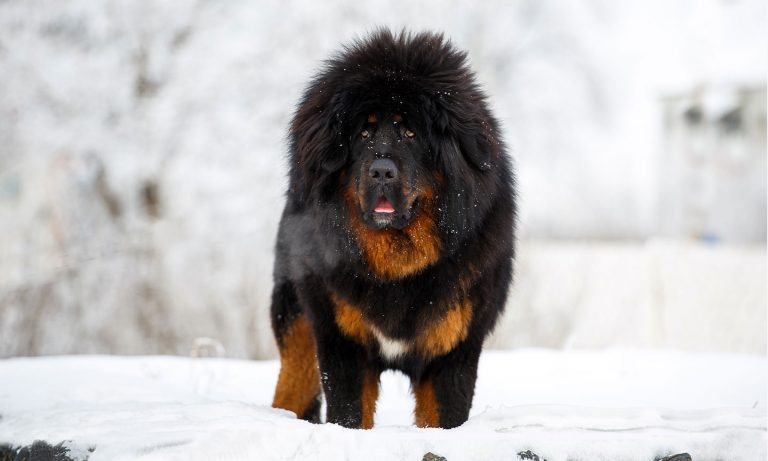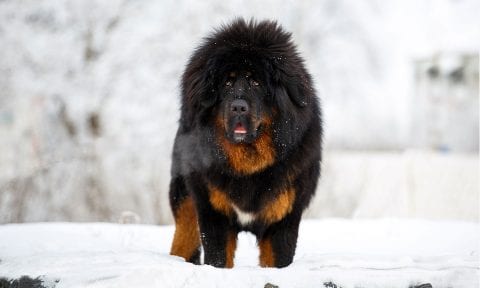Chow Chow vs Tibetan Mastiff

Breed Snapshot
Best For
Independent and loyal, Chow Chows are generally quiet dogs with a seriously gorgeous mane. They thrive in calm homes with an experienced, confident pet parents who are ready to not only take on all that...
Independent and loyal, Chow Chows are generally quiet dogs with a seriously gorgeous mane. They thrive in calm homes with an experienced, confident pet parents who are ready to not only take on all that grooming but also provide consistent training and early socialization.
Chow Chow Temperament
Not ones for being overly affectionate, these aren’t your average people-pleasing, one-of-the-pack dogs. Chows are generally quiet and naturally well-behaved. Chow Chows are super clean, easy to potty train and won’t fill your place up with a strong dog smell—traits admired by everyone. Not only that,...
Not ones for being overly affectionate, these aren’t your average people-pleasing, one-of-the-pack dogs. Chows are generally quiet and naturally well-behaved.
Chow Chows are super clean, easy to potty train and won’t fill your place up with a strong dog smell—traits admired by everyone. Not only that, they’re low maintenance when it comes to exercise, which balances out their need for grooming. Also, these pups are ready to protect your space.
Chow Chows can take time to warm up to strangers. (They are often considered the cats of the dog world.) Their reserved natures and natural scowling expressions can sometimes be mistaken for signs of aggression. Things will go a lot smoother when introducing your pet to new people if you signal everything’s OK by making the first move and initiating the greetings, letting your dog follow your lead. If you start socializing and training your Chow Chow puppy early, they can make great family dogs and can even get along with other dogs in the home. That said, if you have cats, it’s best to find a dog more accepting of felines than the Chow Chow.
Wondering if Chows are a good fit for homes with kids and babies? This independent breed usually does best with older family members who understand that Chow Chows typically don’t enjoy being held or cuddled. So, in addition to training and socializing your Chow early, teach children to properly interact with dogs and handle them with care.
Chow Chow Traits

Breed Snapshot
Best For
The majestic and independent Tibetan Mastiff makes a devoted family pet. Ranking among the largest dog breeds, they thrive with a job to do and plenty of room to roam.
Tibetan Mastiff Temperament
Tibetan Mastiffs are independent introverts who tend to be wary of strangers but are loving and loyal to their people. Though personality can vary from one dog to the next, these dogs tend to be headstrong and often think they know what’s best and view themselves more as equ...
Tibetan Mastiffs are independent introverts who tend to be wary of strangers but are loving and loyal to their people. Though personality can vary from one dog to the next, these dogs tend to be headstrong and often think they know what’s best and view themselves more as equal partners than pets.
Like all dogs, Tibetan Mastiffs require proper socialization from the time they’re a puppy. But with plenty of exposure to different people, pets and situations throughout their lives, they’ll be more accepting, though perhaps still aloof, reserving their affection for loved ones.
Pet parents need to be diligent about working with their pup to prevent biting tendencies. They have a bite force of 500 pounds, stronger than that of an American Pit Bull Terrier or German Shepherd, so even a playful bite could do major damage.
Tibetan Mastiff puppies can be taught to get along well with children and other pets when raised with them, but as adults, they may be less accepting of new dogs or other people’s children. And with their sheer size and strength it’s a good idea to supervise even well-socialized Tibetans around young children, cats or small dogs. Remember to teach all children how to interact gently and respectfully with dogs.
Their bossy natures make them a bad fit for obedience competitions, and they’re not built for agility or speed. But give these dogs some sheep, goats or cattle to guard, and watch them excel. They were bred to guard livestock, after all, and they’re at their best and happiest when they’re allowed to be watchful over their domain.




